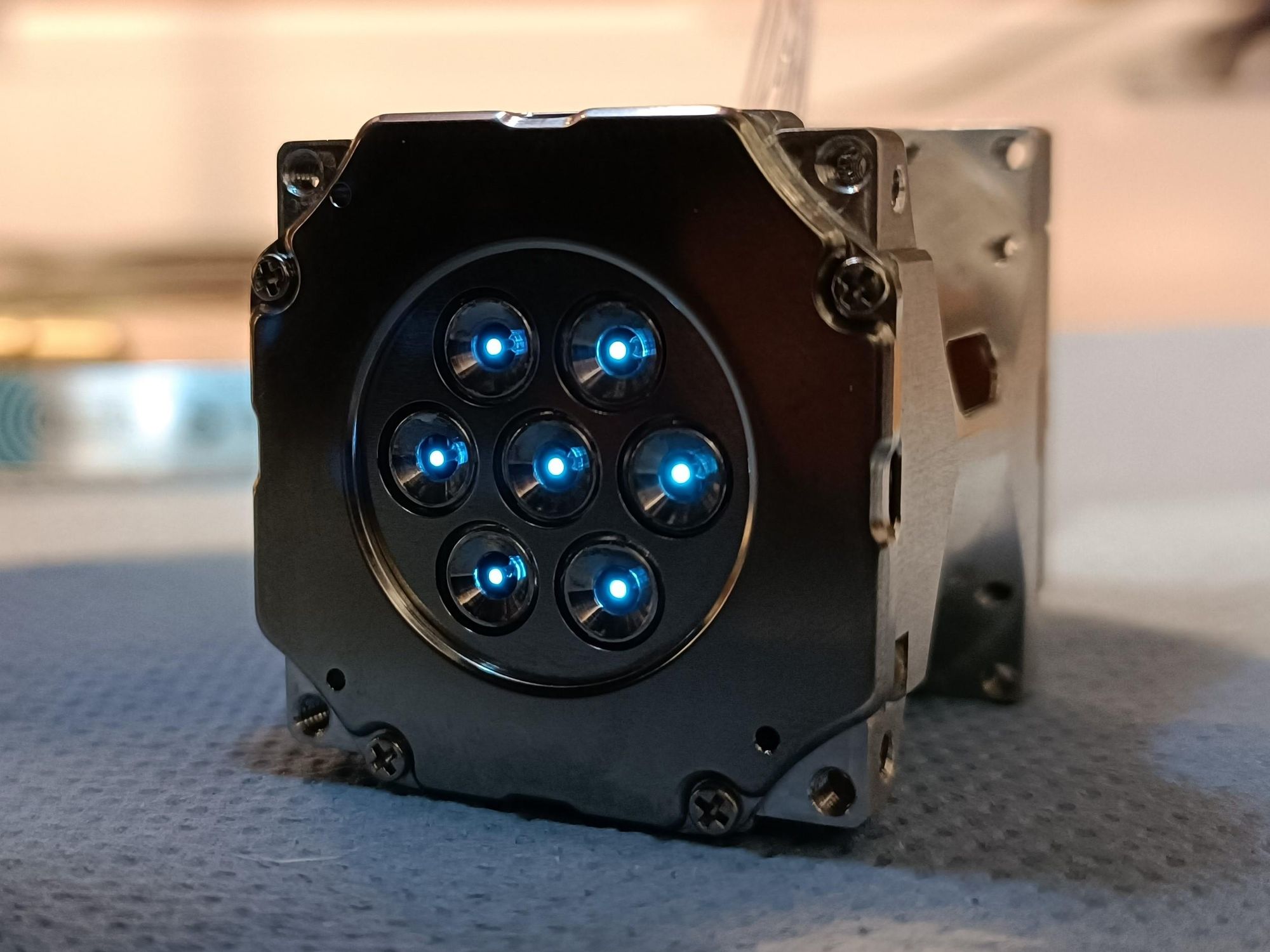Morpheus Space Raises $28M To Open New Factory in Germany
Samson Amore is a reporter for dot.LA. He holds a degree in journalism from Emerson College. Send tips or pitches to samsonamore@dot.la and find him on Twitter @Samsonamore.

Morpheus Space, a Downtown Los Angeles startup that makes electric propulsion systems and software to aid small satellite launchers in managing their vast constellations of devices in space, raised $28 million in Series A funding to expand its operations to Europe and expand manufacturing Sept. 14.
The Series A was led by Munich-based venture capital firm Alpine Space Ventures. According to PitchBook, Morpheus Space is Alpine’s first U.S.-based investment. The connection to Germany is fitting, as Morpheus Space CEO and co-founder Daniel Bock said the company is planning on opening a factory in Dresden.
Morpheus will also use the funding to expand its team, with the goal of reaching 100 employees within the next year. Currently the company employs 45 people in the U.S. and Germany – it operates one existing factory in Dresden. “Although demand has dramatically improved, the company still runs a small, tight knit operation of mostly engineers and software developers,” a spokesman said in a statement.
Small satellite launches are booming now. We can expect more launches as companies look to take advantage of the fact that they’re faster and cheaper to develop. According to a report from Aerospace America, over 1,100 small satellites were sent into space last year alone.
Elon Musk’s Starlink is one of the leaders of this charge; Starlink plans to send 12,000 small satellites into low earth orbit on SpaceX crafts by 2024, and is already well on the way to doing so (it plans to send another 54 internet satellites into space on a Falcon 9 rocket by Sept. 14).
With all these pieces of highly expensive tech floating around in orbit, it’s becoming more critical that companies develop infrastructure, both hardware and software, to manage their trajectories and avoid disasters. One firm with a related mission is Slingshot Aerospace, which just began offering a free version of its Slingshot Beacon platform (basically an air traffic control system for space) to operators.
According to Slingshot’s space object tracking database, there are currently over 9,800 satellites orbiting the globe today. By 2030, that number is expected to climb to at least 115,000. Morpheus wants to “future-proof” its factories now so that it can be prepared to meet growing demand.
Morpheus Space has raised $33 million since its 2018 launch, president István Lőrincz told dot.LA. The company also received a $90,000 NASA grant in 2019 as one of seven companies that entered the space agency’s Entrepreneur’s Challenge program to stimulate innovations in technology that could support future government satellite missions.
“While we operate in the same ‘space,’ our technologies are different in their purpose. In layman's terms, Slingshot is the proximity sensor that beeps when you're backing up your car,” Lőrincz said. “It tells you how close you are to hitting something and provides recommendations to avoid the curb. At Morpheus, while we do provide software that works in tandem with our offerings, we mainly provide hardware that act as the brakes and acceleration that actually move the car away from the curb, and we do it autonomously without the need for human intervention.”
Sherman Oaks-based VC Morpheus Ventures – which, oddly, isn’t affiliated with Morpheus Space other than being an investor – joined the round, as did existing investors Techstars Ventures, Munich-based Vsquared Ventures, Lavrock Ventures, Airbus Ventures, In-Q-Tel and Pallas Ventures.
“The industry has seen significant growth in the last few years, unlike anything we’ve experienced before, and it has presented numerous opportunities for Morpheus to succeed and grow. However, we’ve also seen with our competitors how it presents multiple challenges and lost opportunities for those that cannot keep up,” Morpheus CEO and co-founder Daniel Bock said in a statement. “Both the blessings and problems associated with the space industry right now can be attributed to scalability,” he added, implying that with growth spurts also come growing pains.
- This Week in 'Raises': Morpheus Has a New $200M Fund and Web3 ... ›
- Morpheus Ventures Debuts $200 Million Second Fund - dot.LA ›
- Acelyrin Lands $300M, Ares Management Secures $3.7B - dot.LA ›
Samson Amore is a reporter for dot.LA. He holds a degree in journalism from Emerson College. Send tips or pitches to samsonamore@dot.la and find him on Twitter @Samsonamore.





 Image Source: Skyryse
Image Source: Skyryse